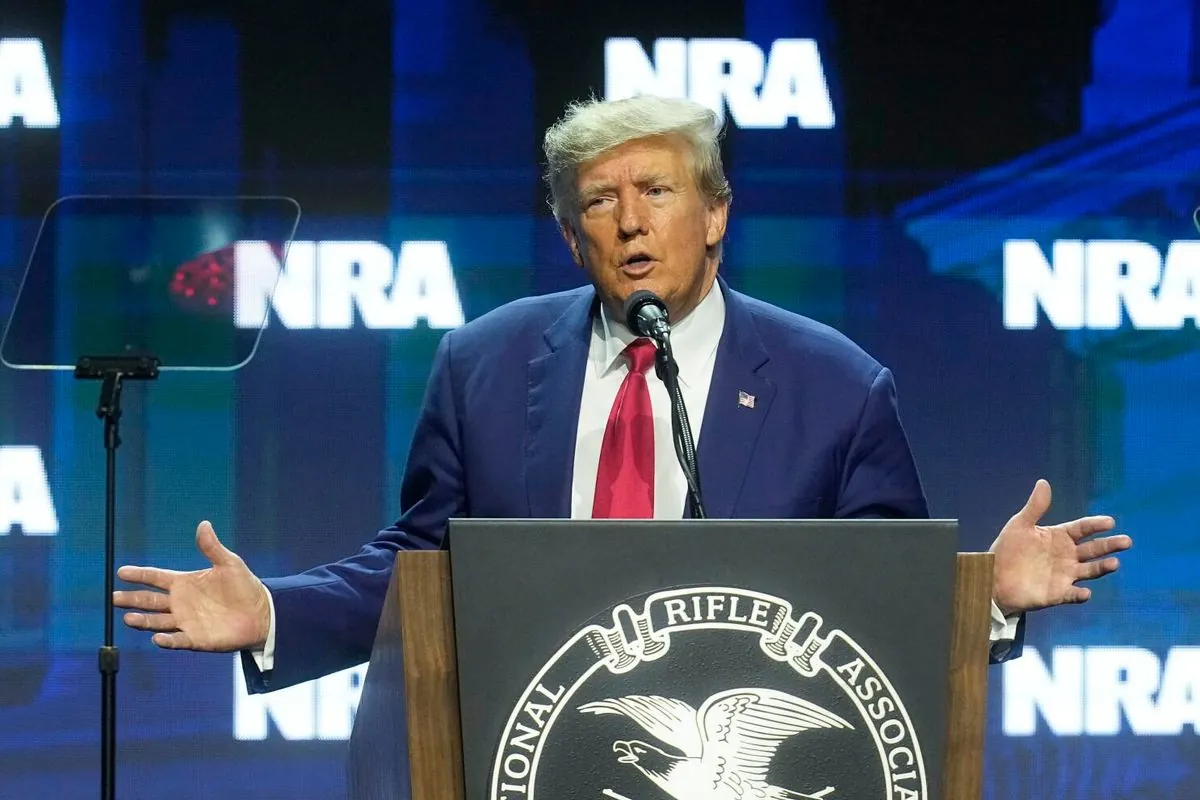Fact Check: Trump's Alleged Truth Social Post About Rittenhouse Debunked
A purported Truth Social post by Donald Trump expressing disappointment in Kyle Rittenhouse has been confirmed as fabricated. Trump's spokesperson labeled the circulating image as "fake news."

A fabricated social media post attributed to Donald Trump regarding Kyle Rittenhouse has been circulating online, prompting a fact-check investigation. The alleged Truth Social message expressed disappointment in Rittenhouse and suggested he should be in jail, contradicting Trump's previous support.
The purported post emerged following Rittenhouse's August 2, 2024 announcement that he would vote for Trump in the upcoming November 5, 2024 presidential election. This declaration came after Rittenhouse had initially criticized Trump's stance on the Second Amendment, which protects the right to keep and bear arms.
A spokesperson for Trump unequivocally stated that the image is "fake news," confirming its inauthenticity. Fact-checkers found no evidence of the post on Trump's Truth Social account, a platform launched by the former president in February 2022.
The fabricated message gained traction on social media platforms, highlighting the ongoing challenge of distinguishing between genuine and false information online. This incident underscores the importance of fact-checking in the era of social media and the spread of misinformation.

Interestingly, the image originated from an X (formerly Twitter) account that explicitly states it sometimes posts parody and satire. The account owner later confirmed creating the image as satire, with a small "parody" label visible at the bottom of the fabricated post.
This incident recalls the events of 2020 when Rittenhouse, then 17 years old, was involved in a shooting during racial unrest in Kenosha, Wisconsin. The unrest was sparked by the police shooting of Jacob Blake. In 2021, Rittenhouse was acquitted of all charges, including first-degree intentional homicide, after a highly publicized two-week trial that gained national attention.
The spread of this fabricated post demonstrates the ongoing challenges social media platforms face in combating misinformation. As AI-generated content becomes more sophisticated, distinguishing between real and fake posts is increasingly difficult for users and platforms alike.
It's crucial for readers to approach social media content critically, especially when it involves high-profile figures like Donald Trump and Kyle Rittenhouse. Fact-checking organizations play a vital role in verifying information and debunking false claims, contributing to a more informed public discourse.
"There is no evidence that the image shows a genuine Truth Social post from Donald Trump."
This incident serves as a reminder of the importance of media literacy and the need for critical thinking when consuming information online, particularly in the lead-up to significant political events like the U.S. presidential election.


































